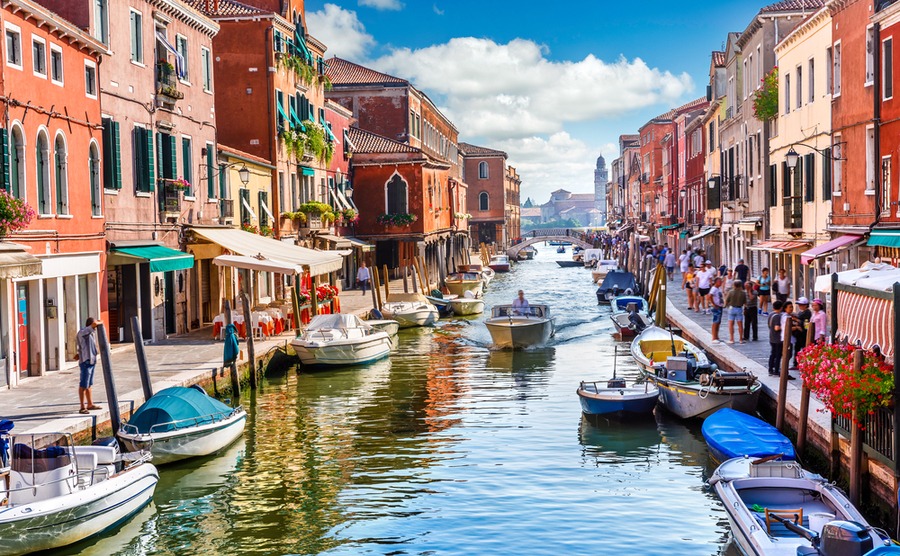It’s not long now until the Brexit deadline of 31st January, but is it really going to be over for British people buying in Italy? Media hype makes many think so, but British buyers in Italy have risen by over 14% in the last year. They know something the others don’t – and that something is how to ‘Brexit-proof’ their plans. They know how to move to Italy whatever happens, and they’re already planning how to do it.
So, what’s their secret? Here’s how to buy that dream Tuscan villa, or Roman apartment, after Brexit:
Buying a house in Italy if the Brexit deal goes through
If the current Brexit deal goes through, then you likely won’t find any changes for the next year. The implementation period will run up to 31 December 2020, and, during this time, you’ll be able to buy property and move to Italy exactly the same as you can now. If you’re living here by the end date, you’ll also have your rights guaranteed for another five years (and you can easily apply for residency after that).
Buying a house in Italy after Brexit
There’s absolutely nothing stopping you living out your dream of a new life in Italy once Brexit is fully complete (or in the case of a no-deal). You can still buy property without extra legal requirements – this isn’t governed by the EU. All you’ll need to do is to apply for the correct visa once you’ve bought; your lawyer will be able to help you with this. Your main options are the following:
Owning a holiday home
This is a smooth and simple process. Simply apply for a normal tourist visa, which allows you to stay for three months at a time. Ample time to soak up the Italian sun! You can easily apply for one for summer and one later on for winter – there’s no restriction.
Get more advice from Italian emigration lawyers to find out the best options for your own situation post-Brexit.
Retiring to Italy
There’s nothing stopping you enjoying the relaxed Italian pace of life, good food and sense of community in your retirement.
The elective residency visa allows you to stay for a renewable period of one year, as long as you do not spend six or more months outside the country. You must prove you have somewhere to live and sufficient funds to live here without employment. This depends on a case-by-case basis, but around €2,600 a month is a good benchmark for a single applicant. Our recommended legal firm can provide a full checklist on this. Once you arrive, you need to convert it into a permesso di sogiorno within eight days.

Even if there’s a no deal, Brexit won’t stop you from purchasing property in Italy.
Working in Italy
At regular intervals, the Italian government issues a Decreto Flussi, which specifies the number of workers per region that they’ll take. You’ll need to apply for a job with a local employer, and they’ll then ask for an authorisation from their Prefecture to start the application on your behalf. With this done, your application for a working visa will go ahead – and within less than thirty days, you’ll have it in hand!
If you’re working for yourself and setting up a company, you can apply for Italy’s ISV (Italia Startup Visa). You’ll need a proof of financial resources, a nulla osta (official authorisation) and proof of accommodation in Italy. The visa is renewable and valid for one year.
Alternatively, you can apply for an EU blue card, which is valid for two years for people with a job offer and a minimum salary of around €24,800. You can renew at the same intervals.
Find out more about moving after Brexit and get advice tailored to your situation from one of our trusted legal partners.
Investing in Italy
Italy’s extremely keen to attract foreign investment, which is great news for overseas property buyers. Your first option, as above, is the elective residency visa, whereby you can gain residency with a guaranteed income. For high-value investments, there’s a so-called golden visa, granting residency for an investment of €1 million in public-interest projects (eg cultural initiatives) or a company. In return, you get two years’ residency.
Arriving in Italy
One of the first things to do when you get here is to convert your entry visa into a permesso de soggiorno within eight days, which will let you stay in the country for the validity of your visa.
Once you’ve reached five years of residency, you’ll be able to apply for permanent residency. This guarantees you the right to enjoy your life here in sunny Italy for as long as you like – no matter what has happened with Brexit!
To-do: your ‘Brexit-proofing’ list:
- Connect with a trusted lawyer about the best visa for you and how to apply
- Talk to your currency company how to transfer your money, so you have a set euro budget
- Once you’re in Italy, apply for your permesso di soggiorno
Speak to our trusted Italian visa specialists
They will help you pick the right visa for your circumstances. Our recommended specialists have years worth of experience in helping our readers. They will give you all of the information you will need clearly and concisely, in English.
You can Brexit-proof your plans and get connected with our visa specialist by completing our short form.











